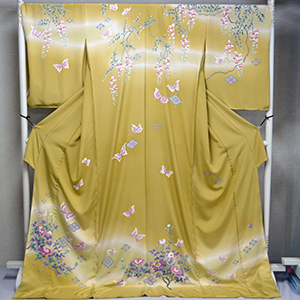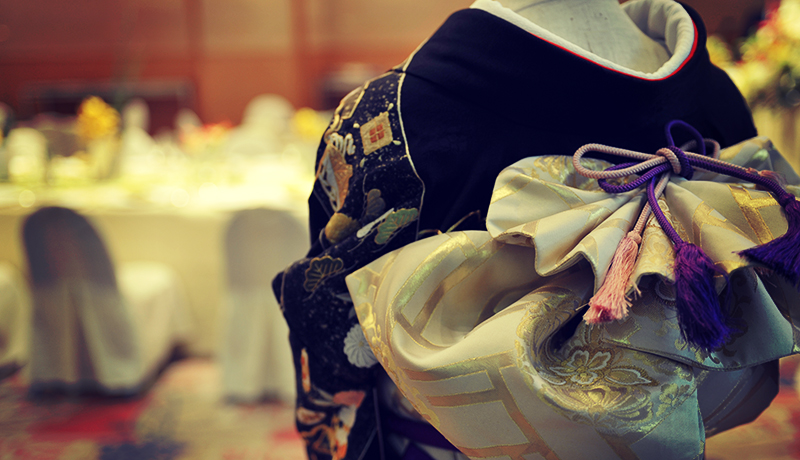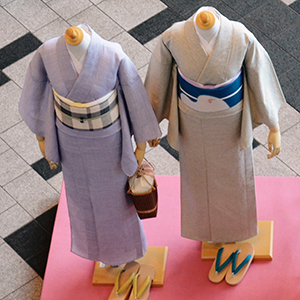

Japan’s Gorgeous Garments
Photo Courtesy of Starwood Hotels & Resorts Worldwide Inc
A vintage kimono is the ultimate Tokyo souvenir, an authentic piece of one-of-a-kind art. Bonus: Used kimonos are but a fraction of the price of new ones, which cost thousands of dollars as they are custom-made of high-quality silk. Vintage kimonos are in remarkably good condition, as they are used only on special occasions, meaning they rarely have the well-worn look so common with second-hand clothing.

Kimonos, Photo Courtesy of Terry Elward
When you begin your search, there are three pieces to consider: the actual kimono, which can be worn or displayed on a wall as an artwork; the obi, which is a wide belt made of thick woven silk — these are often used as table runners or wall hangings rather than belts, as they are about six to 11 inches wide and 10 to 12 feet long; the nagajuban, an under-kimono type of garment that is made of soft, thinner silk and makes for a lovely dressing gown.
Original pieces are usually silk, but can occasionally be linen or cotton. Some of the 1970s kimonos are even polyester with flower power prints, but most are made in the traditional style with a symbolic motif (a crane for good luck and longevity while bamboo represents strength and perseverance). Depictions of clouds, waves and seasonal landscapes are popular designs, too. Male kimono patterns tend to be more conservative. Plain black obis and kimonos are worn for funerals.
Once you’ve sorted all of that out, make your way to these three vintage kimono shops:
Chicago, Jingumae/Harajuku
Don’t let the building’s chintzy neon sign with palm trees deter you. This hipster thrift shop is a chain store that sells everything from vintage Levi jeans to cool cardigans, but you’d never guess that this outlet also has a great selection of vintage kimonos and obis. A large selection of items is well organized in this basement store.

Another Vintage Display, Photo Courtesy of Terry Elward
Hanazono Shrine Markets, Shinjuku
This 300-year-old Japanese temple holds a flea market on its grounds every Sunday until sunset. Here you’ll find particularly good kimono at bargain prices. Keep an eye out for haori coats, kimono-like waist-length jackets, which are also sold here.
Oriental Bazaar, Omotesando
This large store, which sits near Chicago on Omotesando Street, is something of a landmark in Tokyo. High-quality artwork and antiques are sold alongside other more commonplace souvenirs. Head down to the basement and ask the friendly English-speaking staff about the kimonos and obis for sale. Particularly beautiful pieces are on offer; opulent wedding obis and colorful kimonos come with an explanation of the fabric, age and the design. While at the bazaar, pick up bamboo rails and stands to display these wearable works of art.
